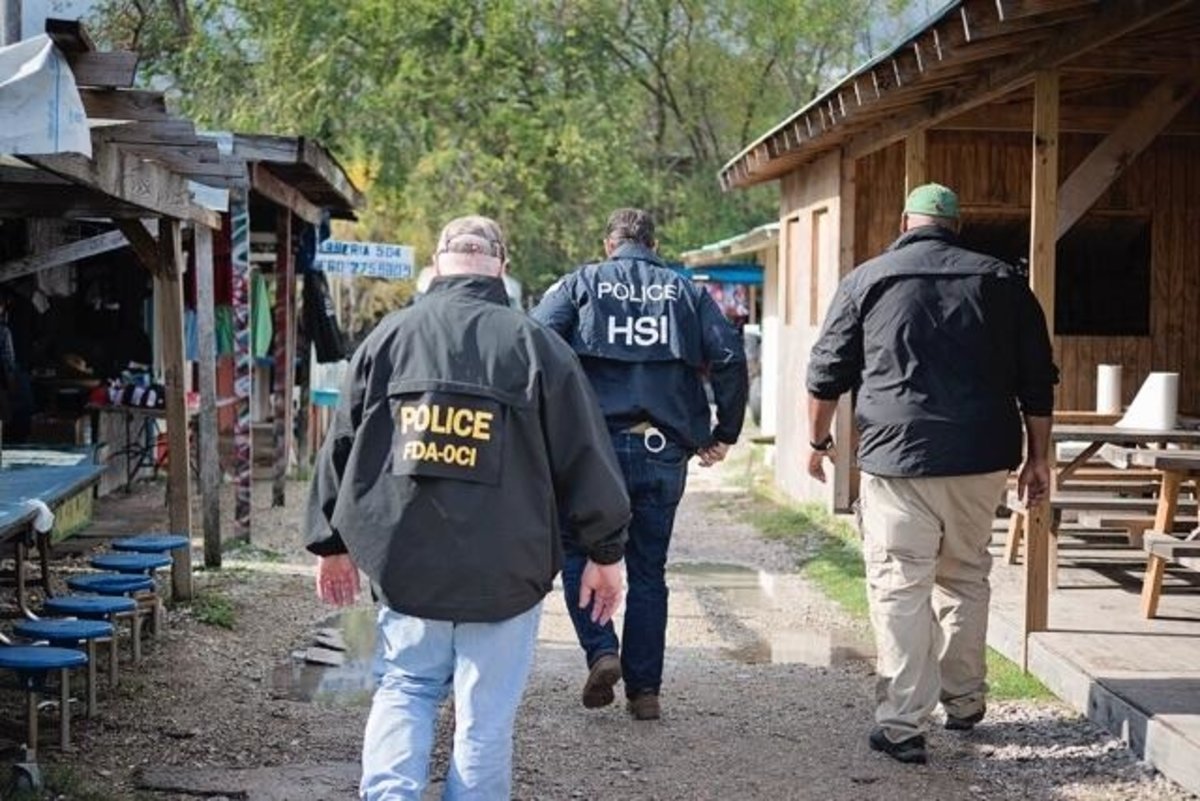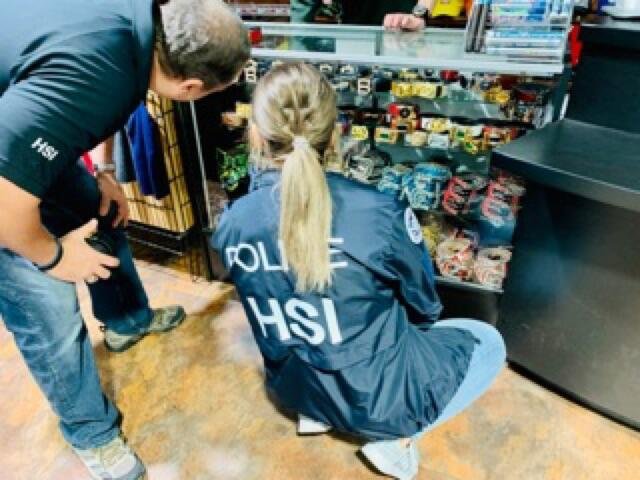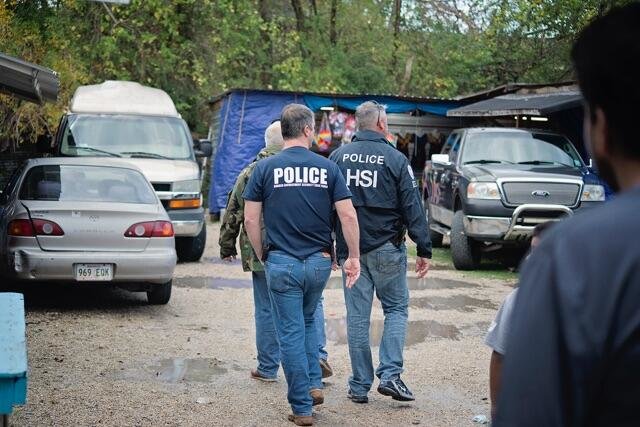
Beginning in early November of 2021, Homeland Security Investigations New Orleans, US Customs and Border Protection, and the US Food and Drug Administration’s Office of Criminal Investigation joined the Louisiana State Police Bureau of Investigation to seize 59,425 fake imports. Homeland Security Investigations photo.
They’re not North Pole elves, but federal agents morph into Santa’s little helpers during their annual anti-counterfeiting sting: Operation Safety Claus.
Beginning in early November, Homeland Security Investigations New Orleans, US Customs and Border Protection, and the US Food and Drug Administration’s Office of Criminal Investigation joined the Louisiana State Police Bureau of Investigation to seize 59,425 fake items.
If the confiscated phonies were genuine, they’d retail for more than $1 million. This year’s haul included bogus cosmetics, perfumes, drugs, electronics, sports memorabilia, designer watches, and apparel.
“Counterfeit products such as pharmaceuticals and cosmetics pose a serious threat to the health and safety of unsuspecting consumers, impacts legitimate trade, and compromises our national security,” Jeb Bison, Homeland Security Investigations New Orleans special agent in charge, said in a release emailed to Coffee or Die Magazine.

“What shoppers may not know is that when you buy counterfeit goods, you’re not only exposing yourselves to potential health and safety risks, but you may also be helping fund larger criminal activities,” Terri Edwards, US Customs and Border Protection’s New Orleans Area Port director, added in a statement emailed to Coffee or Die.
About one out of every five seized items was likely bound for online sale, Edwards estimated.
“I could be shopping online for a new pair of pants, right now, on my phone, while standing at this podium if I wanted to,” she said.
The same sting last year netted roughly 51,000 items worth $16.7 million. In 2019, Operation Safety Claus nabbed about 33,000 items valued at $8 million.

The higher retail estimates for 2020 can be chalked up to a few confiscations of faux luxury goods, according to US Customs and Border Protection New Orleans spokesperson Matthew Dyman.
“It’s just, sometimes you go fishing, and you catch a trophy fish; other times, a handful of little fish,” Dyman told Coffee or Die. “I believe last year there were some high-value seizures that put the numbers up.”
Edwards urges consumers buying online during the holiday season to check seller reviews, verify that the listed phone numbers really work, and contact sellers to investigate whether they’re shady.
“Buy from legitimate sellers,” Edwards said. “Do your research. And remember: if a deal feels too good to be true, it’s probably fake.”
Read Next:

Noelle is a former staff writer for Coffee or Die through a fellowship from Military Veterans in Journalism. She has a bachelor’s degree in journalism and interned with the US Army Cadet Command. Noelle also worked as a civilian journalist covering several units, including the 75th Ranger Regiment on Fort Benning, before she joined the military as a public affairs specialist.
BRCC and Bad Moon Print Press team up for an exclusive, limited-edition T-shirt design!
BRCC partners with Team Room Design for an exclusive T-shirt release!
Thirty Seconds Out has partnered with BRCC for an exclusive shirt design invoking the God of Winter.
Lucas O'Hara of Grizzly Forge has teamed up with BRCC for a badass, exclusive Shirt Club T-shirt design featuring his most popular knife and tiomahawk.
Coffee or Die sits down with one of the graphic designers behind Black Rifle Coffee's signature look and vibe.
Biden will award the Medal of Honor to a Vietnam War Army helicopter pilot who risked his life to save a reconnaissance team from almost certain death.
Ever wonder how much Jack Mandaville would f*ck sh*t up if he went back in time? The American Revolution didn't even see him coming.
A nearly 200-year-old West Point time capsule that at first appeared to yield little more than dust contains hidden treasure, the US Military Academy said.












